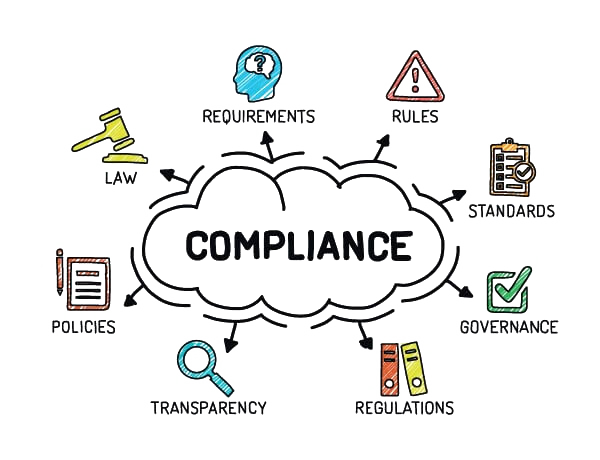Financial Regulation and Compliance
- Description
- Curriculum

I. Introduction:
The financial industry operates within a complex and evolving regulatory environment designed to protect consumers, maintain market integrity, and safeguard financial stability. This course provides a comprehensive overview of the key regulatory frameworks governing financial institutions, covering areas such as banking, securities, insurance, and anti-money laundering. Participants will gain a deep understanding of regulatory principles, compliance challenges, and best practices. The course explores the impact of regulatory changes on financial institutions, including the implications for business models, risk management, and operational processes. By examining case studies and real-world examples, participants will develop the ability to identify potential regulatory risks and implement effective compliance strategies.
Furthermore, the course emphasizes the importance of regulatory technology (RegTech) in enhancing compliance efficiency and effectiveness. Participants will explore emerging technologies and their applications in areas such as reporting, monitoring, and surveillance. By the end of the course, participants will be equipped to navigate the complex regulatory landscape, mitigate compliance risks, and contribute to the overall stability of the financial system.
II.Course Objectives:
• Understand the fundamental principles of financial regulation
• Develop a strong knowledge of key regulatory frameworks and standards
• Master the art of regulatory risk assessment and management
• Acquire skills in developing and implementing effective compliance programs
• Learn to navigate complex regulatory changes and adapt accordingly
• Enhance communication and stakeholder management abilities
III.Course Highlights:
Module 1: Financial Regulation Overview
• Evolution of financial regulation
• Key regulatory bodies and their roles
• Regulatory principles and objectives
• Impact of financial crises on regulation
Module 2: Regulatory Framework and Standards
• Core regulatory frameworks (Basel, Solvency II, Dodd-Frank, etc.)
• Anti-money laundering and counter-terrorist financing regulations
• Consumer protection regulations
• Market conduct and integrity rules
Module 3: Regulatory Risk Management
• Identifying and assessing regulatory risks
• Developing regulatory risk mitigation strategies
• Implementing a regulatory compliance framework
• Monitoring and reporting regulatory compliance
Module 4: Compliance Program Development
• Designing and implementing a comprehensive compliance program
• Compliance policies and procedures
• Compliance training and awareness
• Compliance culture and ethics
Module 5: Regulatory Change Management
• Understanding regulatory changes and their impact
• Developing a regulatory change management process
• Implementing changes effectively and efficiently
• Regulatory gap analysis and remediation
Module 6: Emerging Regulatory Issues
• Fintech and regulatory challenges
• Cybersecurity and data privacy regulations
• Climate-related financial risks and disclosures
• International regulatory cooperation
IV.Target Audience:
• Compliance officers and professionals
• Risk managers and auditors
• Financial institution employees
• Legal professionals in the financial industry
• Regulatory authorities and policymakers








